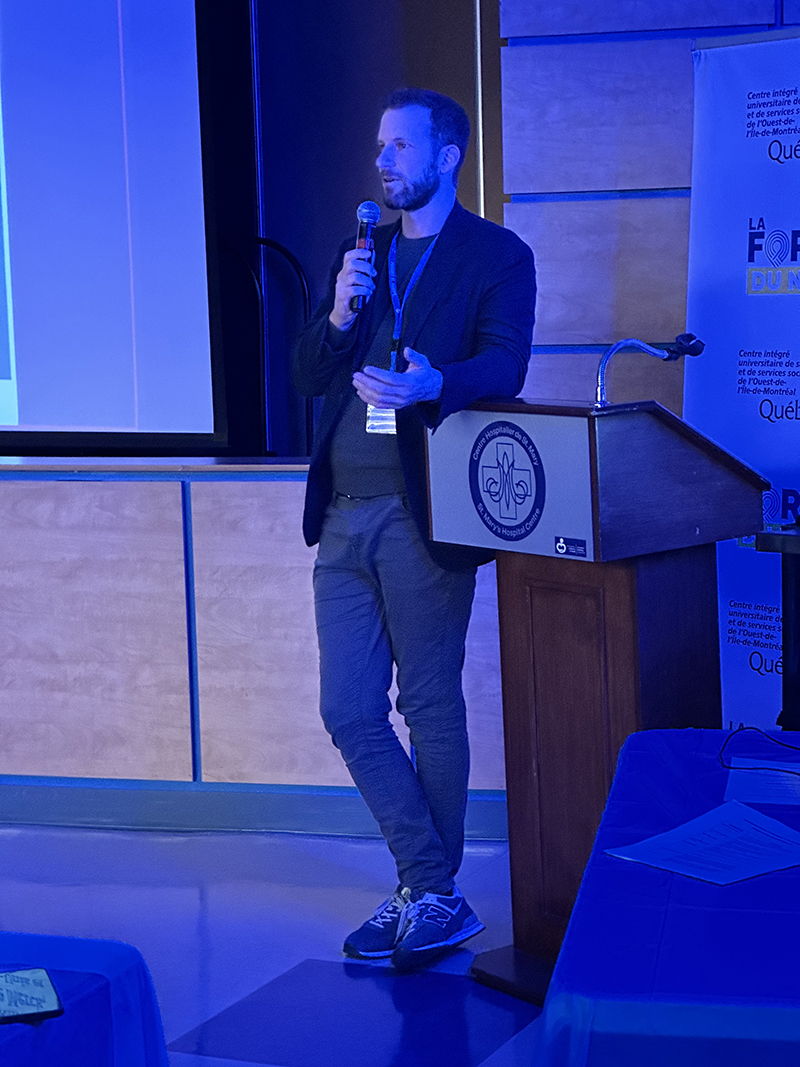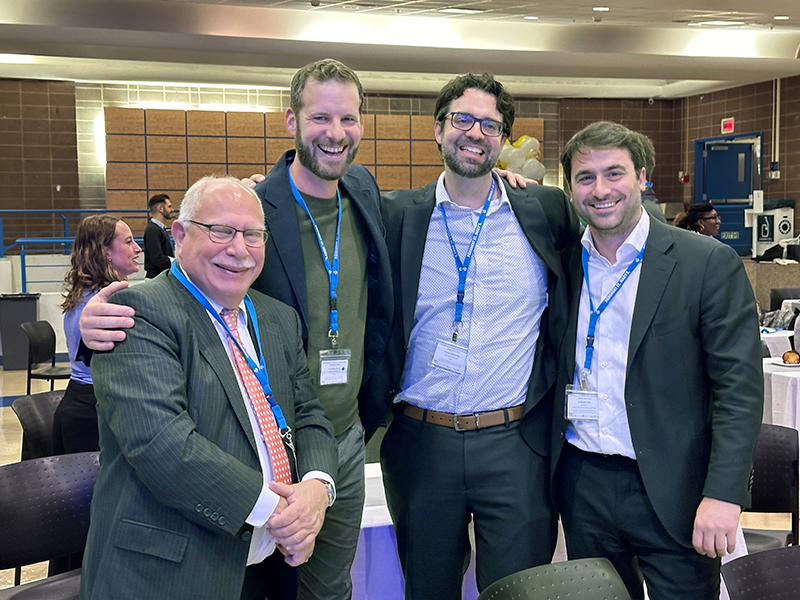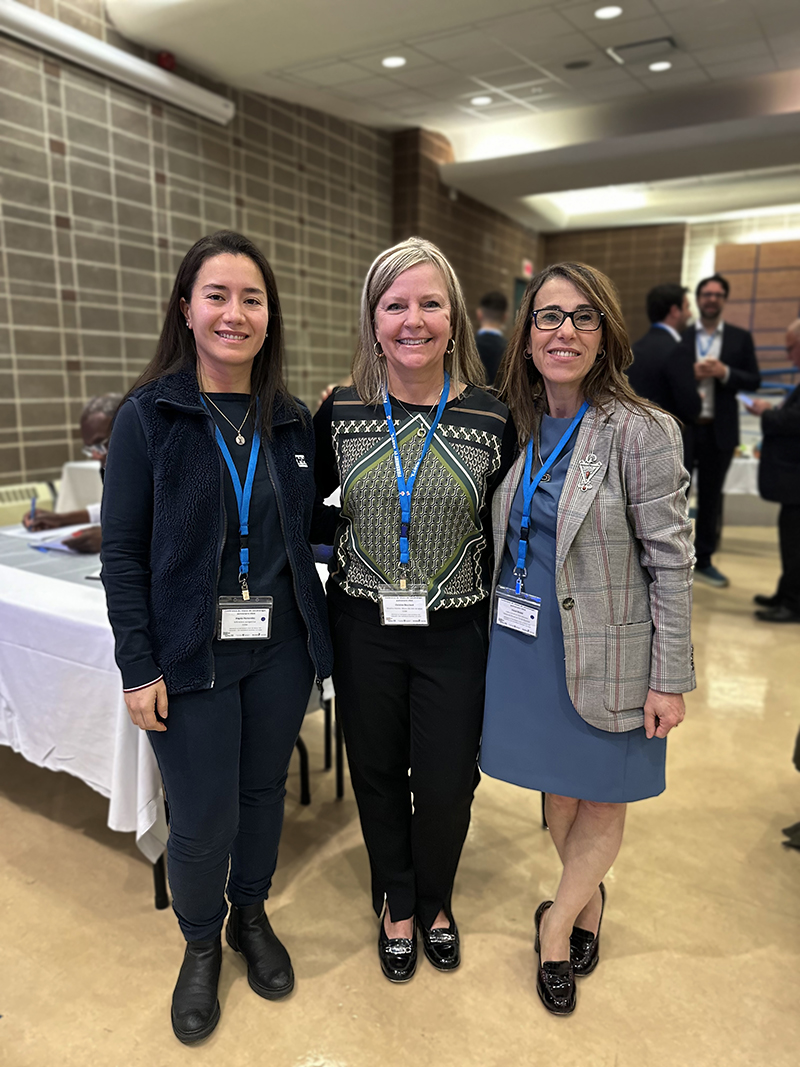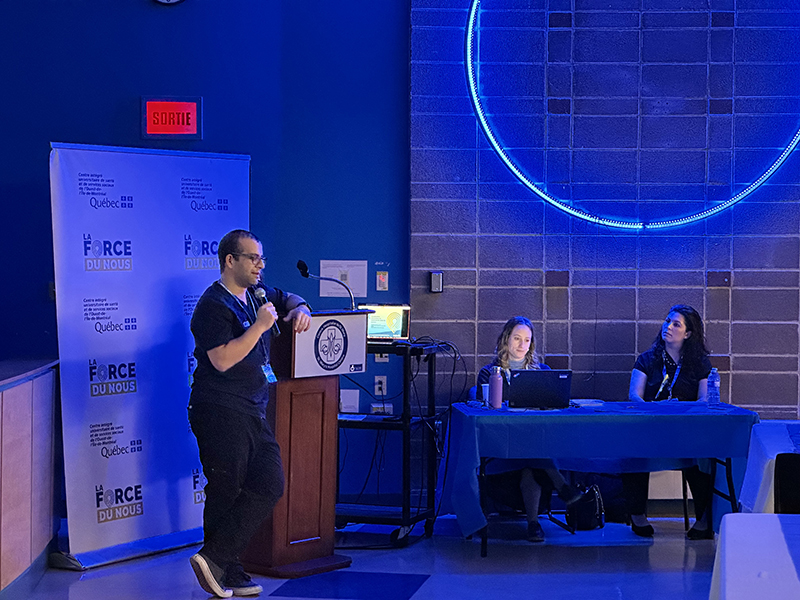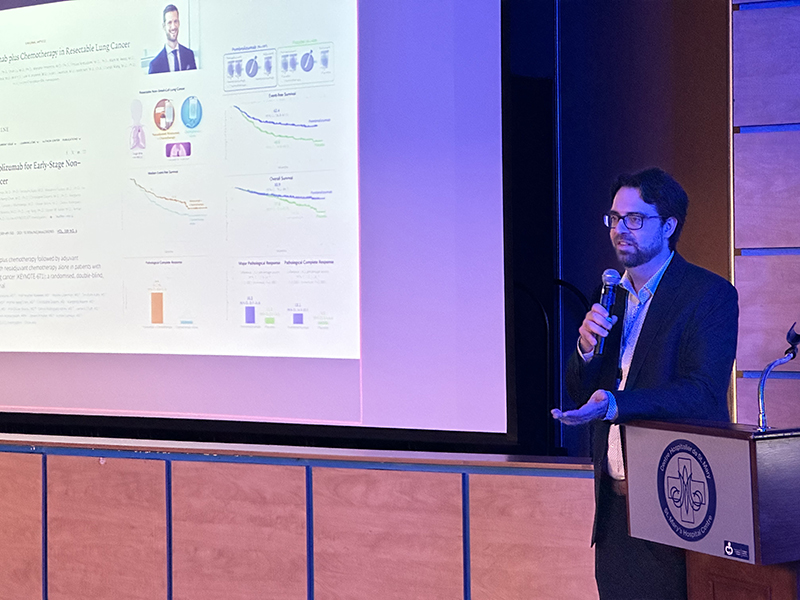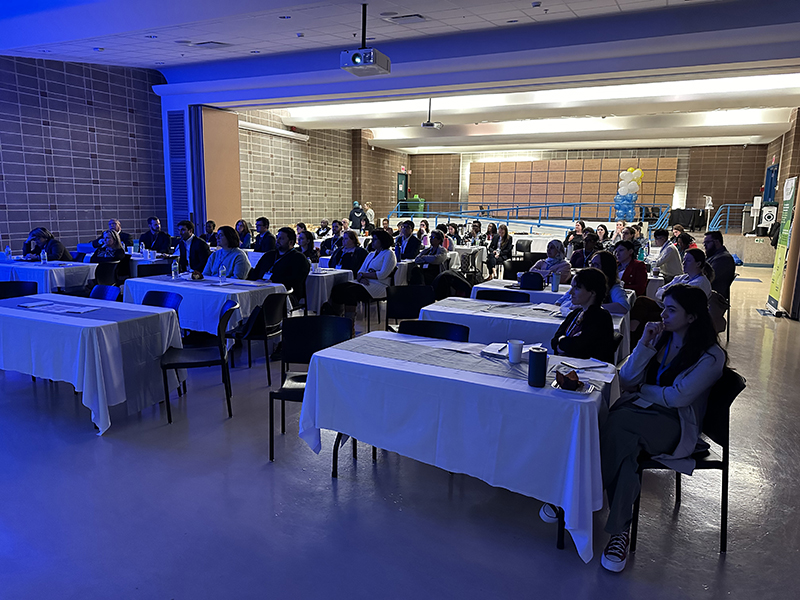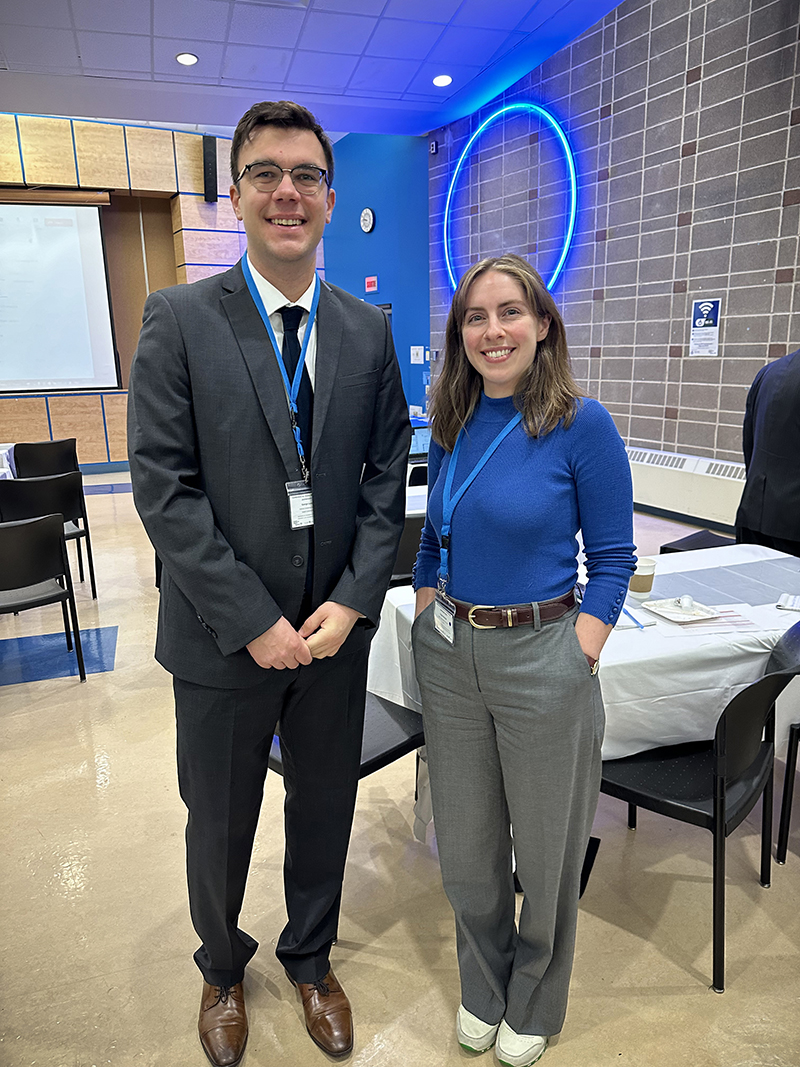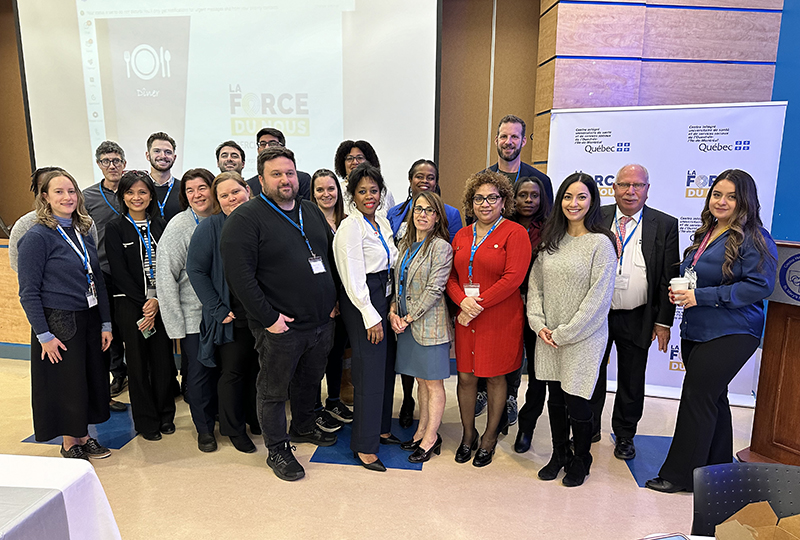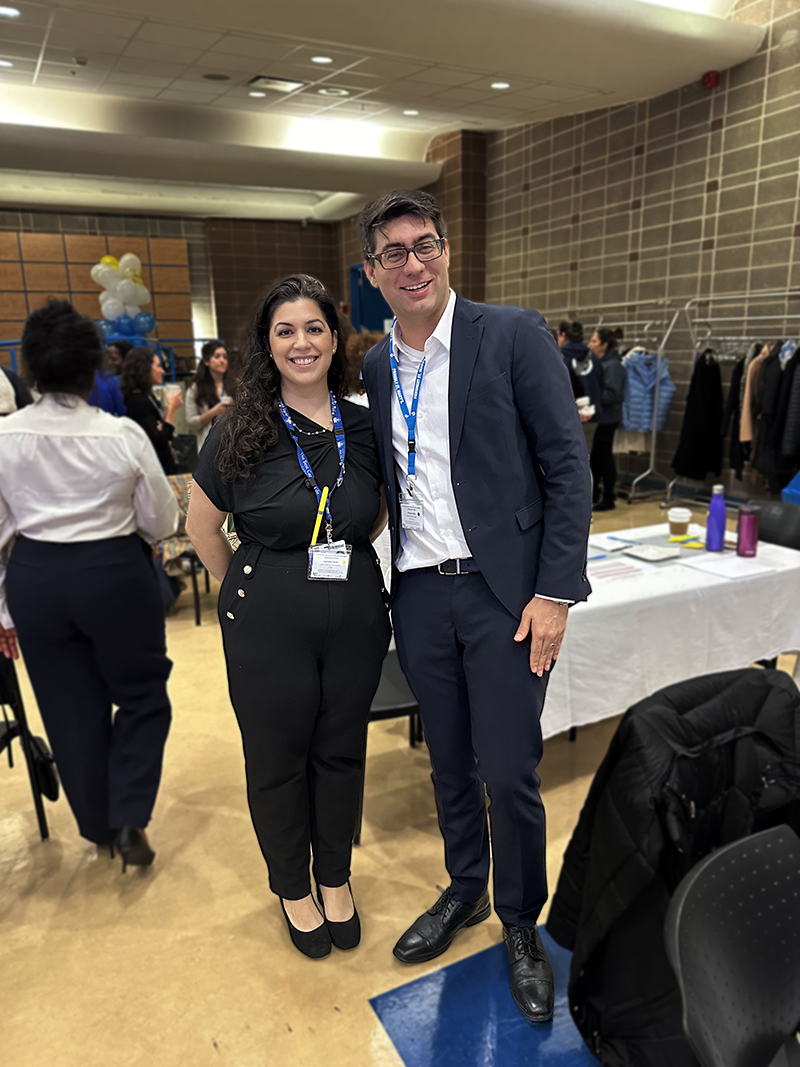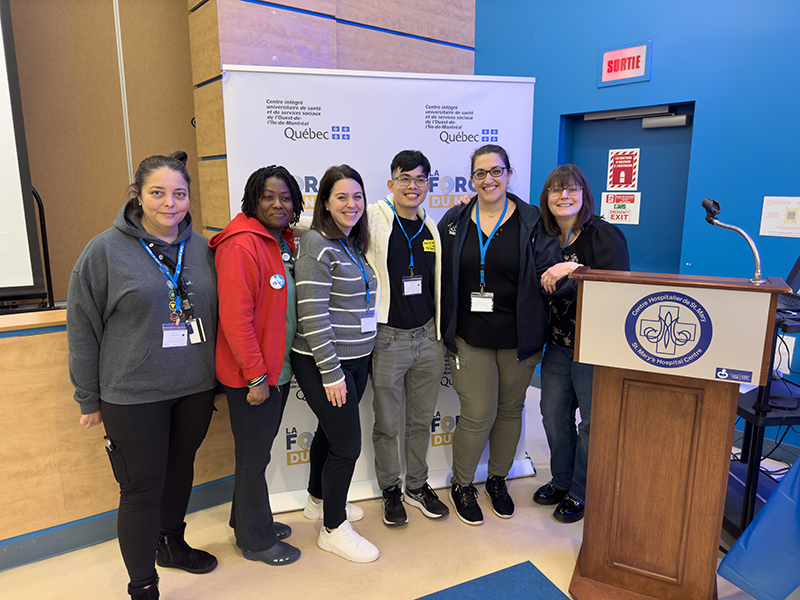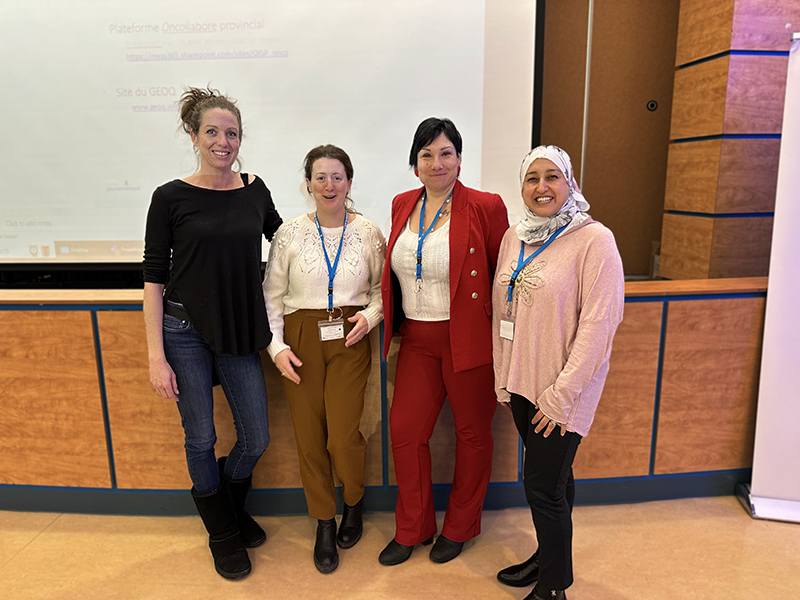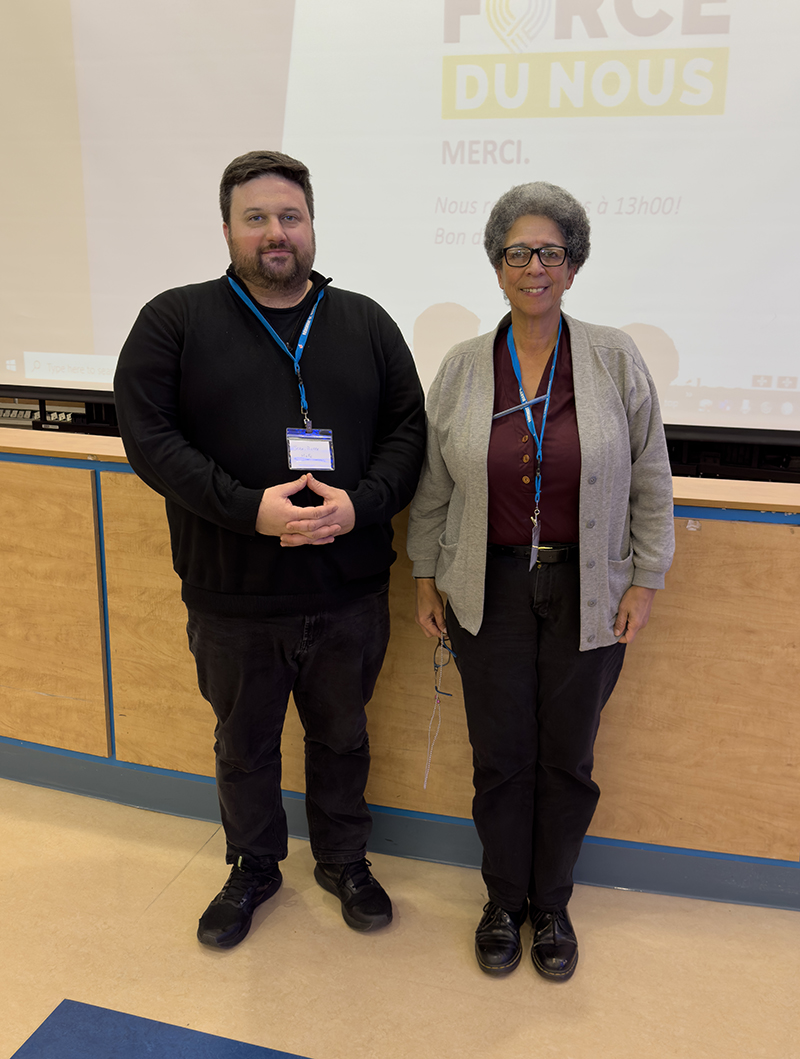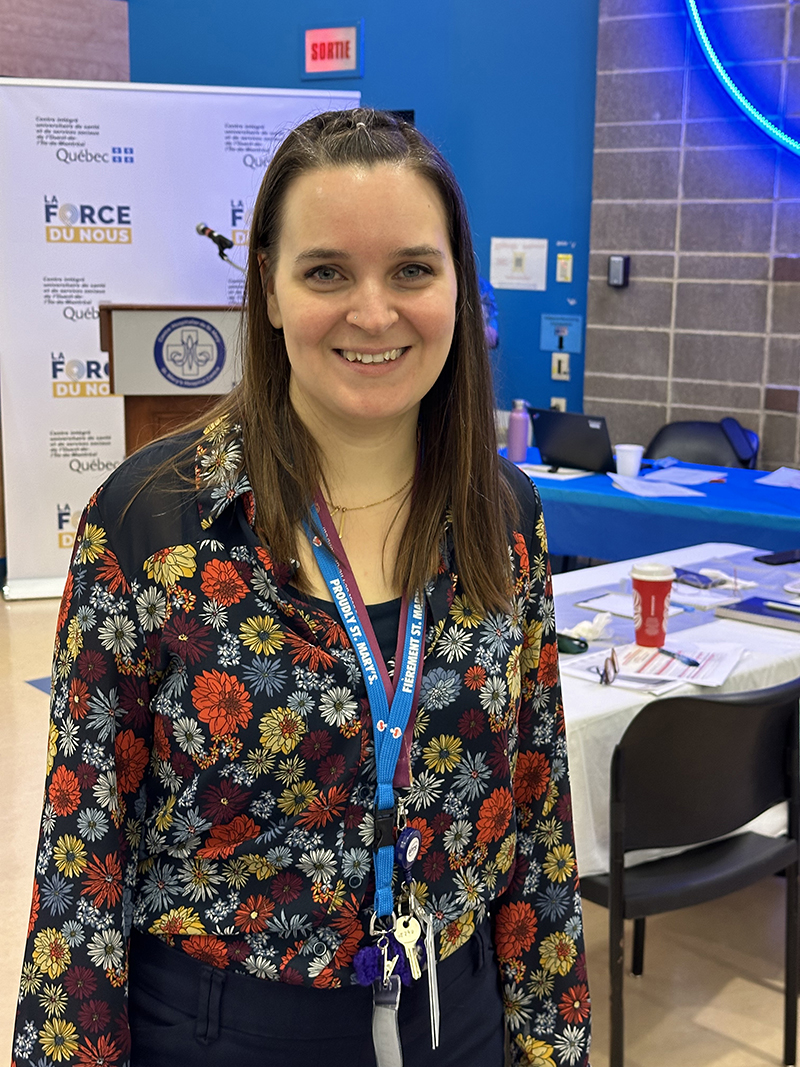The Lung Cancer Network: the MUHC demonstrates its leadership within the RUISSS McGill
On November 29, the RUISSS McGill held its fourth annual Lung Cancer Network Conference at St. Mary's Hospital Centre. Once again, the day was rich in sharing and exchanging success stories, and highlighted the various initiatives developed by the MUHC network, which has been the designated lead centre since 2019.
Noteworthy initiatives for optimal care
Over the past five years, the MUHC has been responsible for coordinating and supporting its network's institutional partners in the fight against lung cancer. Every effort has been made to promote the sharing of best practices, innovative treatments, and increased collaboration with regional centers, thereby enhancing accessibility and quality of care. This year’s conference, organized by the CIUSSS de l'Ouest-de-l'Île-de-Montréal (ODIM), showcased these efforts through concrete projects such as the Rapid Pulmonary Investigation Access Point(GRIP), already implemented at St. Mary’s and CIUSSS ODIM.
Dr. Spicer emphasized the importance of an online referral system to optimize patient pathways, while Dr. Meti highlighted that the GRIP reduces diagnostic delays by facilitating collaboration between clinicians. Information technology tools, such as the one initiated by the Centre d’investigation en oncologie and developed by IT specialists at CIUSSS du Nord-de-l'Île, support these advancements.
For his part, Dr. Langleben, Medical Director of Oncology at CIUSSS ODIM, described how the McGill RUISSS works together to ensure access to clinical trials.
Research and innovations
Among the research highlights was a video underlining the pioneering role of the MUHC and the Institute as the first in the world to participate in trials of individualized messenger RNA therapy. Dr. Esfahani discussed the challenges of immunotherapy in the treatment of lung cancer and presented the MIRAE project, which focuses on immune-related complications. Dr. Fiset, a researcher at the Institute, highlighted the use of artificial intelligence to analyze cancerous tissue, a method that reduces diagnostic bias. This work, also published in Nature, showcases the MUHC's pioneering role in research.
Comprehensive patient support
Other initiatives, such as the screening for psychological distress using a questionnaire developed at the MUHC, presented by Virginia Bruman and Luca Petrucelli, and the benefits of music therapy, presented by Sophie Pinard, demonstrate a holistic approach to patient care.
A promising collaboration
The day ended with a round-table discussion bringing together experts and decision-makers, as well as speeches by Nathalie Fortin, Director of Cancer Care and Services at the MSSS-PQC (Programme Québécois de cancérologie), and Christine Bouchard, Associate Director of the MUHC Cancer Care Mission.
According to Christine Bouchard: “It's important to raise awareness of our entire network and to understand the realities of our colleagues and partners. Together, we will succeed! Organizing these annual meetings at organizations other than the MUHC is a real opportunity! These are unifying moments and a source of motivation!”
“This conference was an opportunity to promote the work of our centres while promoting collaborative learning,” said Samantha Santilli, MUHC Senior Advisor who was responsible for organizing the meeting with the partners. “I hope that this conference will encourage other centres in the McGill RUISSS network to volunteer to host a future conference on lung cancer,” she added.
For Dr. Spicer, Thoracic Surgeon at the Montreal General Hospital (MUHC) and Researcher in the cancer program at the Institute: " It was wonderful to see the incredible engagement and passion from such a diverse group of experts working to improve the lives of our lung cancer patients. We covered an enormous range of subjects that helped solidify our cross functional teams and build our network’s ability to deliver world class patient care”
The McGill RUISSS Lung Cancer Network reaffirms its leadership by combining innovation, collaboration, and excellence in care.


